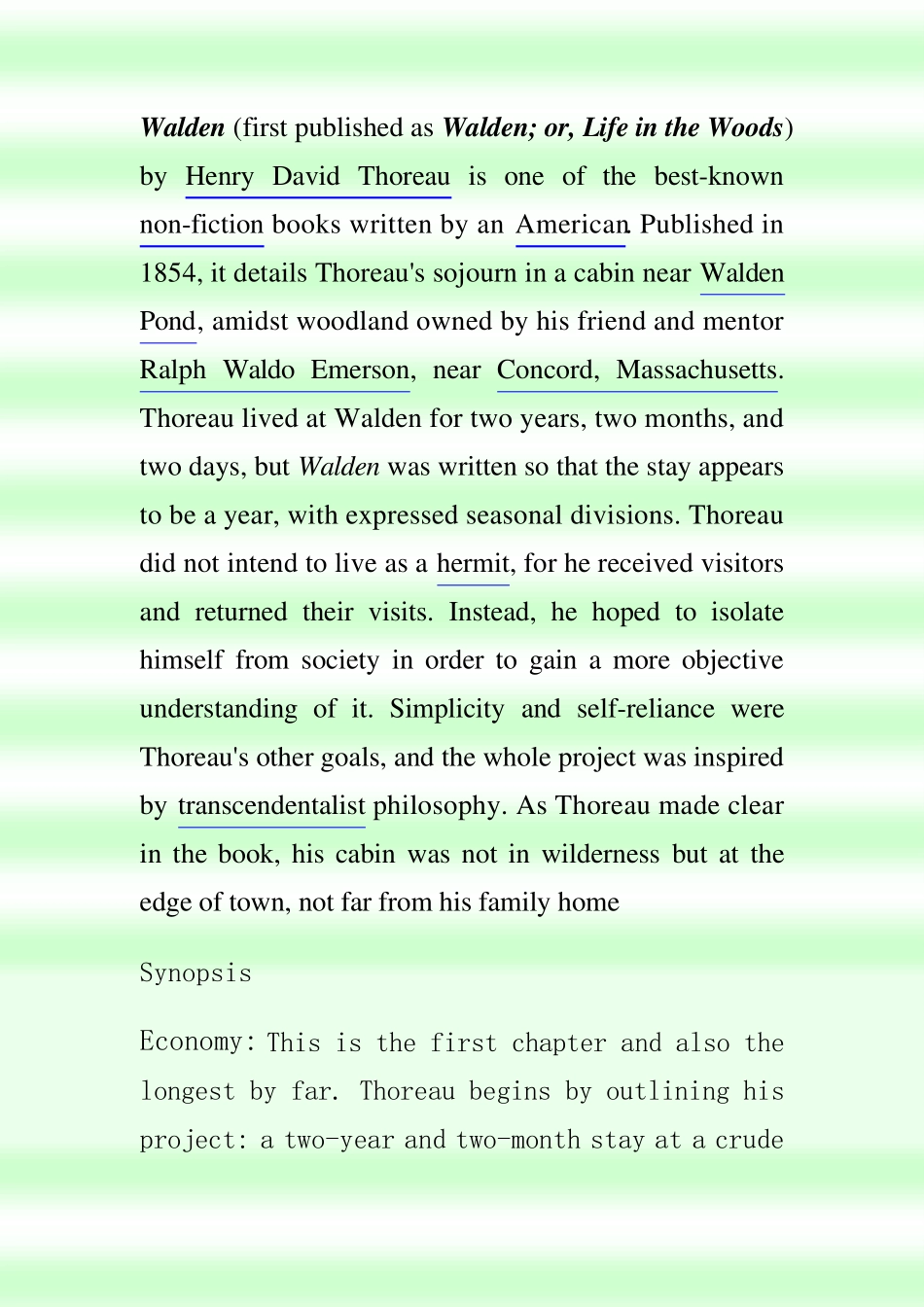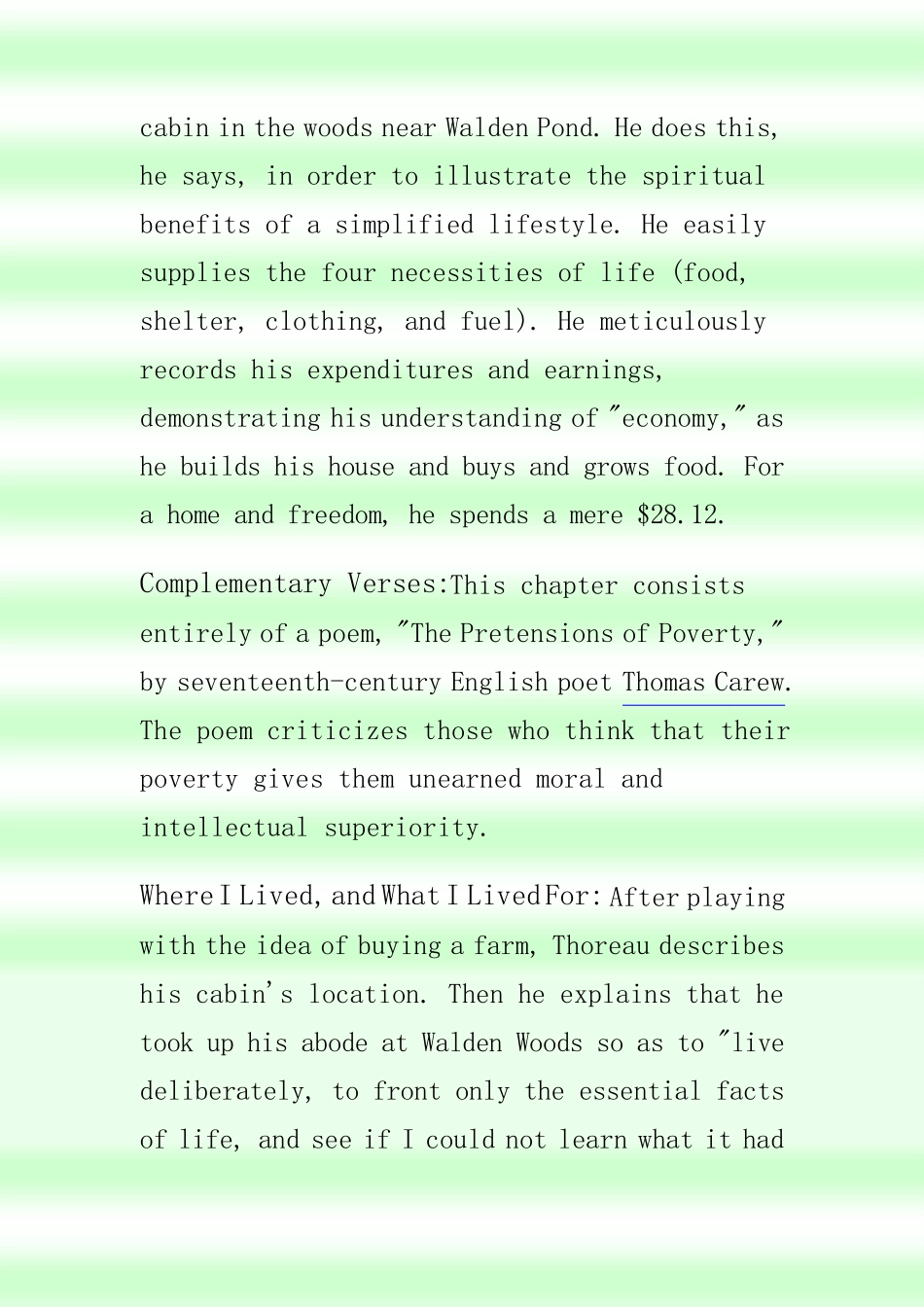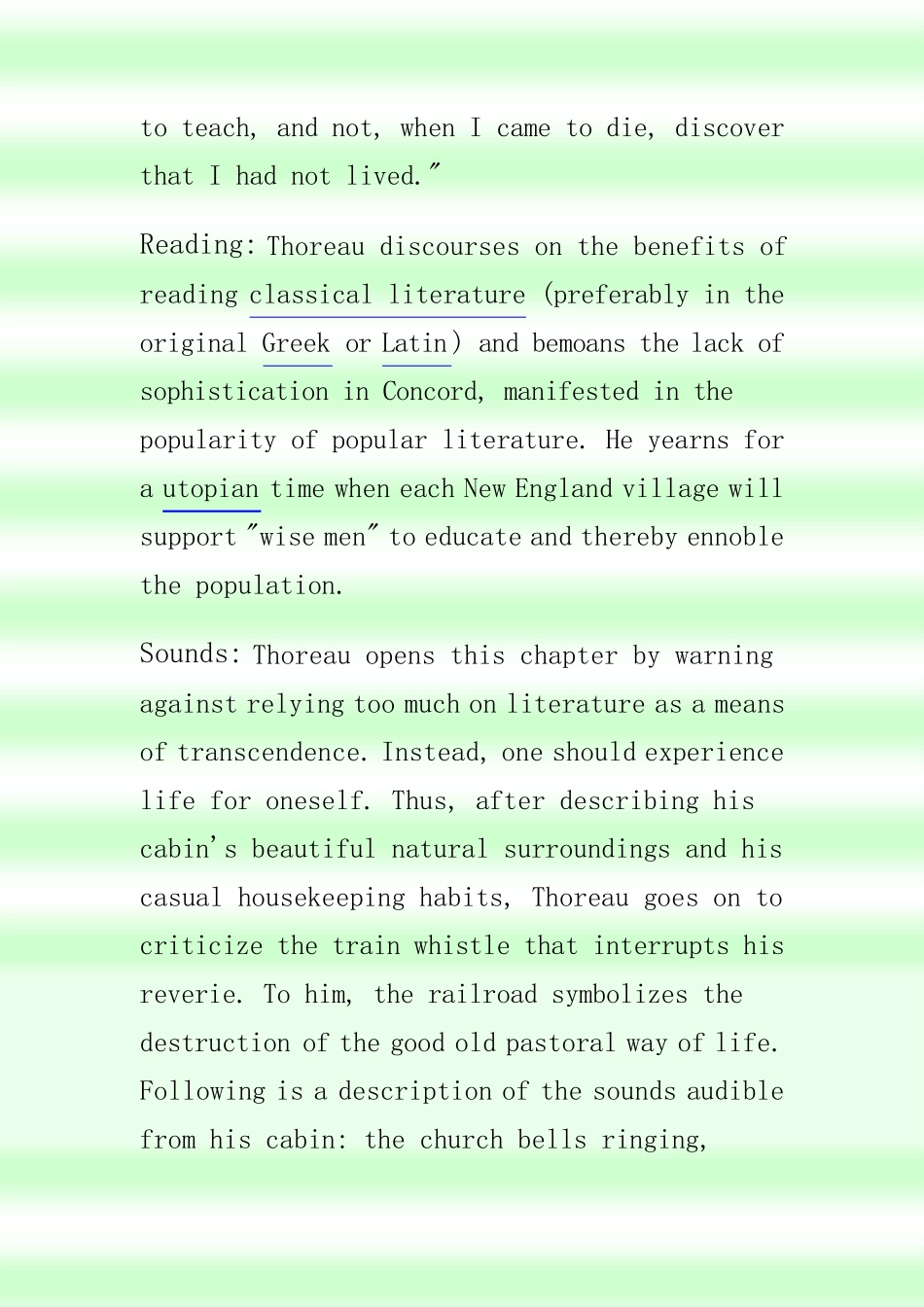Walden (first published as Walden; or, Life in the Woods) by Henry David Thoreau is one of the best-known non-fiction books written by an American. Published in 1854, it details Thoreau's sojourn in a cabin near Walden Pond, amidst woodland owned by his friend and mentor Ralph Waldo Emerson, near Concord, Massachusetts. Thoreau lived at Walden for two years, two months, and two days, but Walden was written so that the stay appears to be a year, with expressed seasonal divisions. Thoreau did not intend to live as a hermit, for he received visitors and returned their visits. Instead, he hoped to isolate himself from society in order to gain a more objective understanding of it. Simplicity and self-reliance were Thoreau's other goals, and the whole project was inspired by transcendentalist philosophy. As Thoreau made clear in the book, his cabin was not in wilderness but at the edge of town, not far from his family home Synopsis Economy: This is the first chapter and also the longest by far. Thoreau begins by outlining his project: a two-year and two-month stay at a crude cabin in the woods near Walden Pond. He does this, he says, in order to illustrate the spiritual benefits of a simplified lifestyle. He easily supplies the four necessities of life (food, shelter, clothing, and fuel). He meticulously records his expenditures and earnings, demonstrating his understanding of "economy," as he builds his house and buys and grows food. For a home and freedom, he spends a mere $28.12. Complementary Verses: This chapter consists entirely of a poem, "The Pretensions of Poverty," by seventeenth-century English poet Thomas Carew. The poem criticizes those who think that their poverty gives them une...


